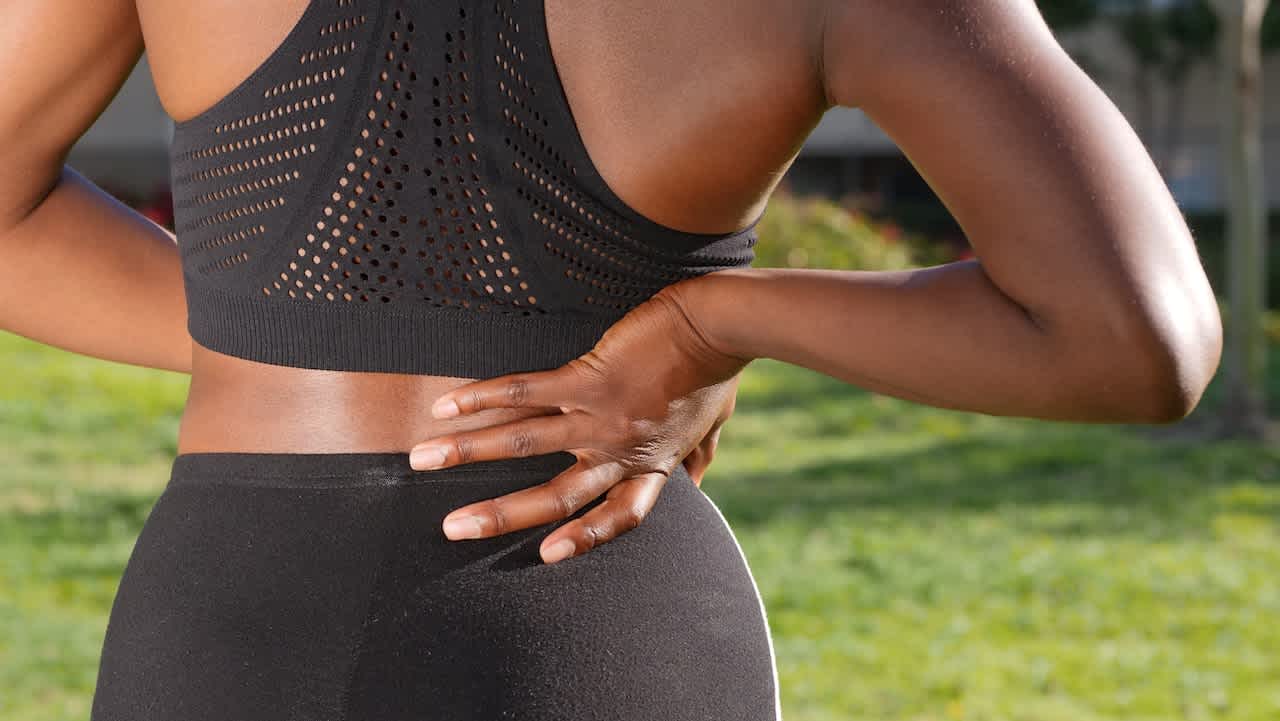Sciatica is a painful and sometimes debilitating condition where the Sciatic nerve becomes irritated and/or compressed. Many clients suffering with Sciatica use western medications such as NSAIDs and painkillers to help alleviate the pain, but is there an effective, alternative solution that doesn’t rely on medication?
So, is Dry Needling good for Sciatica? It is currently thought that Dry Needling is an effective, safe alternative to western medication, such as NSAIDs, for alleviating Sciatic pain. However, experts agree that more research is needed to fully understand the efficacy of the treatment.
Read on to learn more about how Dry Needling can help clients suffering with Sciatica.
Can Dry Needling Help Sciatica?
Sciatica is a condition where the Sciatic Nerve becomes irritated or compressed (3), and often presents with neuropathic pain (NP). Acupuncture and Dry Needling are often well regarded treatments for pain, including nerve-related pain(4, 5), suggesting that it could be an effective treatment for Sciatic pain. This is supported by current literature around the topic that finds Dry Needling to be an effective treatment for relieving Sciatic pain(1).
However, further research found that the meridians used in Dry Needling for Sciatica is critical to achieve pain relieving results. Researchers indicate that the use of the bladder and gallbladder meridians may be effective for this treatment (2).
That being said, both of the above studies (1, 2) state that there is currently limited evidence to firmly support Dry Needling for Sciatica, and that a series of control trials should be conducted to confirm the treatment’s efficacy.
How Does Dry Needling for Sciatica Work?
Whilst there are multiple explanations of how Dry Needling works, a common theory is that needling regulates the nervous system and releases both neurotransmitters and neuropeptides that work to relieve pain (6, 7).
Dry Needling is also thought to work by relaxing tight muscles and improving blood circulation (7). This helps to deliver oxygen and essential nutrients to the affected area.
Does Dry Needling Offer Immediate Relief from Sciatica?
The treatment itself will usually last around 30 minutes, and patients may feel some relief immediately afterwards. However, most clients will need a minimum of 4-6 Dry Needling sessions to achieve lasting results (8, 9). It is usually recommended that clients have frequent sessions at the beginning of their treatment, and begin to lengthen the time between sessions as they begin to notice the benefits.
However, practitioners should use their judgement when recommending a course of Dry Needling treatment, taking into account:
- How long the client has been suffering with Sciatica, as long-term conditions usually take longer to treat
- The client’s general health and age
- The client’s commitment to getting better
Learn more about how long Acupuncture and Dry Needling typically take to work, and how long clients should wait between sessions in our recent blog.
Can Dry Needling Make Sciatica Worse?
One of the great benefits of Dry Needling is its very few side effects. In rare cases where side effects do present, they are usually mild and short-term (9). What’s more, some studies indicate that it may be a good alternative to NSAIDs, with fewer side effects (10).
That being said, there is limited literature indicating that Dry Needling can make Sciatica worse, provided that clients use fully trained, licensed practitioners, and do not have one of the contraindications listed below.
Contraindications of Dry Needling
The contraindications (11) of Dry Needling (in general, not just for Sciatica) include, but are not limited to:
- In cases where the client has a needle phobia, or adverse belief
- In and around areas with lymphedema
- Blood disorders and vascular disease
- Compromised immune system
- Diabetes
- Pregnancy
- Epilepsy
- Significant allergies
- Certain medications
- Significant frailty
It’s important to note that contraindications do not necessarily mean that clients with these conditions cannot receive Dry Needling. If it is deemed that Dry Needling may have potential to treat or alleviate a condition, clients should consult with their GP or condition specialist to determine if Dry Needling is an appropriate treatment.
Final Thoughts
Whilst formal literature around the topic of Dry Needling for Sciatica is still in its infancy and requires further research, it is thought that the treatment can help to alleviate the pain associated with Sciatica after a number of sessions.
What’s more, researchers have suggested that Dry Needling performs similarly to NSAIDs, but with fewer and milder side effects, making this a particularly useful treatment for those that, for whatever reason, want to avoid pain killers.
The good news for healthcare professionals is that you can easily expand your practice offerings with Acupuncture and Dry Needling services by taking an approved course, such as ours at Breeze Academy. In no time at all, you’ll learn everything you need to safely and effectively deliver Acupuncture and Dry Needling to your clients, helping them to relieve pain safely with long-term results in comparison to medication.
Learn more about our Acupuncture and Dry Needling courses online, or get in touch with a member of our team.
